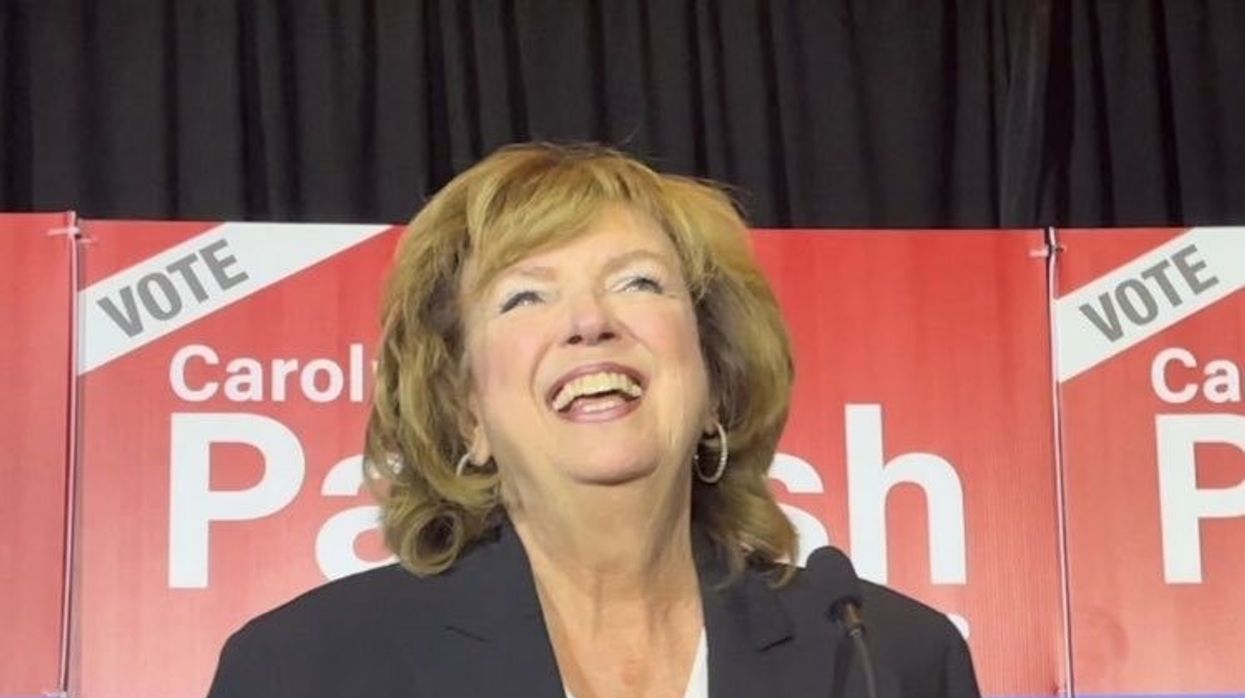The results are in. On Monday night, Carolyn Parrish was elected to be the new mayor of Mississauga. Pending her Oath of office in the coming days, the long-time politician will become the City’s third mayor since 1978.
According to the polls, Parrish’s closest competitor was Alvin Tedjo, whom she beat out by over 8,500 ballots with a total of 43,494 votes in her favour.
After a celebratory speech at the Mississauga Convention Centre, housing seemed to be at the top of Parrish’s mind. “The first step is to get the best developers and builders that we’ve got in our city and bring them in to be my advisors,” she told reporters.
Throughout the campaign trail, the former House of Commons member and ex-Ward 5 councillor was outspoken about tackling Mississauga’s housing and transportation problems, as were her competitors. Here’s where the mayor-elect stands on housing affordability and transportation.
Housing Affordability
In an interview with CP24, Parrish lamented the fact that young people are being forced out of the city by high housing costs. “They grow up in Mississauga. They want to live in Mississauga, and they can't afford the rent, and they can't afford to buy a house,” she said.
Keeping property taxes at or below the cost of living is one of the ways in which Parrish hopes to make the city more affordable for young people. And holding quarterly, rather than annual budget consultations with each ward is how she plans to achieve this. The idea, according to her platform, is to monitor necessary expenses, thereby reducing taxes. She has also told City News, “I get a lot of funding from the private sector for some of my projects, so the taxes will stay fairly level.”
When it comes to actually building new housing units, Parrish is a proponent of the rezoning approach and rejects fourplexes and other gentle infill approaches, saying they “won’t solve our problem,” on her platform. Instead, she identifies “vacant offices,” and “huge malls” as sitting ducks for conversion into mixed-use buildings with affordable housing and commercial and green space. In one example she gave to City News, Parrish is “happy to” have a quarter of the Heartland Town Centre converted by Orlando Corporation, a developer interested in the location.
In order to expedite the building process of projects like these, Parrish plans to establish a Mayor’s Advisory Panel made up of those builders and developers she mentioned to reporters after her election. Her platform says the panel would “make approvals efficient and speedy.”
Transportation
Like many GTA municipalities, Mississauga is known to be a relatively car-reliant city, with its public transit system having acquired a reputation for being slow and unreliable. On her platform, Parrish focuses on making transit an “agreeable alternative to the car by making excellent service paramount.”
She plans to do this by improving bus routes, eliminating “closed door buses speeding by in rush hour,” and she wants to elevate the transit experience as a whole, pledging “increased clean and well lit bus shelters and efficient transfers to connecting routes,” via her platform.
To accomplish this, Parrish has said she will facilitate “consultations with our front-line workers, the transit drivers, who best know how to increase efficiency and service.”
Additional transportation projects she is a proponent of include an East-West connector to the Hazel McCallion LRT, all day GO to Milton, and installing bike curbs alongside bike lanes instead of paint lines, which she describes as “unsafe.”
On her platform, she says “Funding from senior levels of government will be a priority,” for bringing these projects to fruition.





















